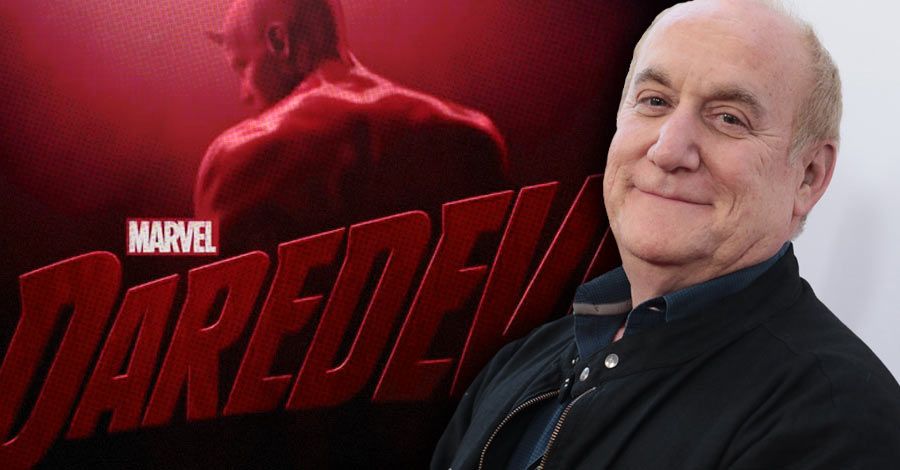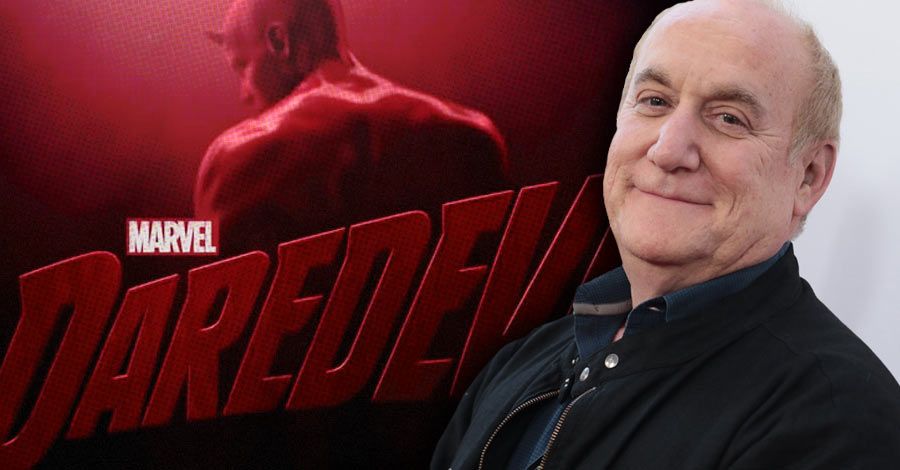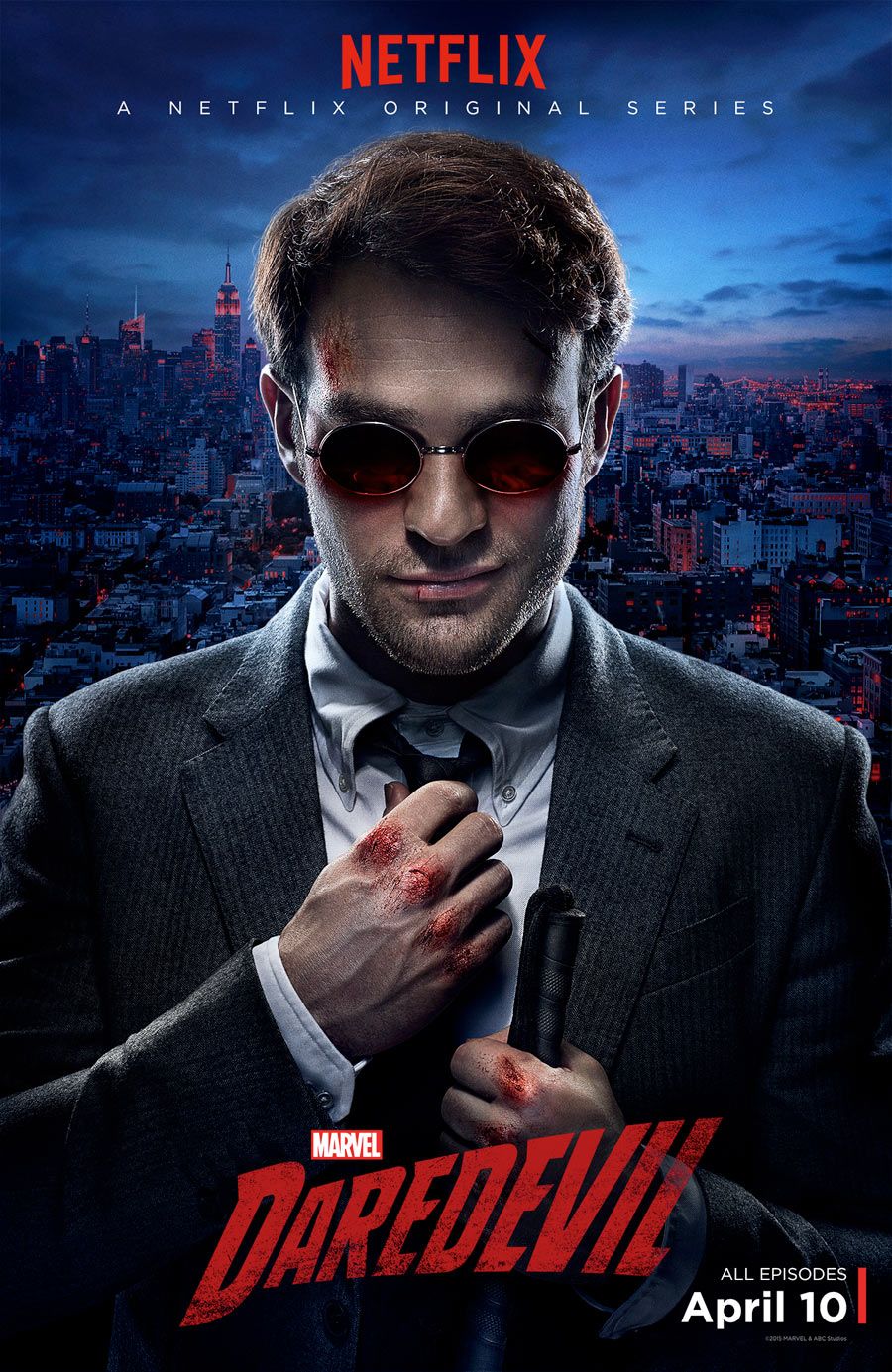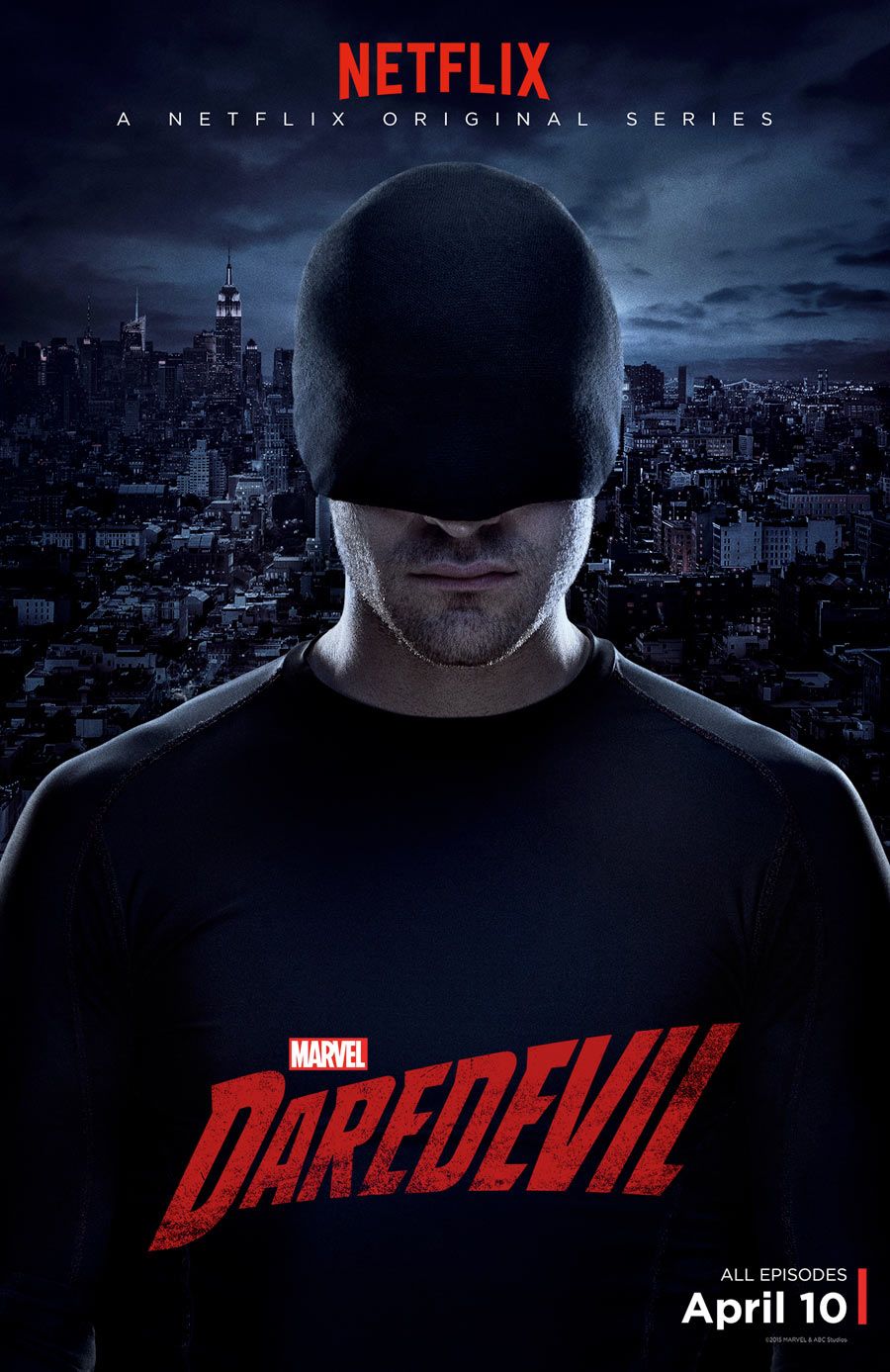He gave us fresh, fun films like "Teen Wolf" and "Commando," written game-changing comics like "Batman: The Long Halloween" and "Daredevil: Yellow," and has worked on revolutionary TV series like "LOST" and "Heroes." So it's no surprise that as Marvel Studios' Head of Television, Jeph Loeb is shaking up the way we see superheroes on television.
After launching "Agents of S.H.I.E.L.D." and "Agent Carter" on network TV, Loeb's now overseeing the dramatic, ambitious plan to bring the comic book company's stable of street-level heroes to the world of top-quality streaming content via industry titan Netflix, beginning with a character especially close to his own heart, Daredevil -- the first in a series of superhero shows that will culminate in an "Avengers"-style team-up, "The Defenders."
RELATED: CBR's "Daredevil" Binge-Blog
CBR News joined Loeb at a recent press roundtable, where he threw back the curtain on how the groundbreaking plan came about and provided a few hints at what's ahead. We also spoke one-on-one with him about the grand plans Marvel has for its multiple Netflix series, possible crossovers with "Agents of S.H.I.E.L.D.," and Stan Lee's traditional cameos.
CBR News: Tell me about doing the four shows, but letting each one be its own show first and then figuring out the connectivity.
Jeph Loeb: Well, the philosophy -- we didn't have to look very far. Down the hall, there's this movie studio called Marvel Studios, which is separate from us but really gave us the inspiration for what it was. Because when you look at Iron Man and Hulk and Thor and Captain America -- those are very different kinds of movies, and yet they all feel very Marvel. It enabled you to meet the characters on their own, have that kind of history, that mythology in your life, and also fall in love with each one of those characters. And then, put them together into the Avengers.
So this is the same kind of idea: "Daredevil," "Jessica Jones," "Luke Cage," "Iron Fist" will all feel like they're of a same piece, but at the same token, they're very different stories, very different heroes, very different approaches as to what it is they're going to be doing.
This is such a specific corner of the Marvel Universe. Can we hope for any crossover with the ABC shows?
Well, as we like to say, it's always connected -- or #itsallconnected -- but the reality of it is, I think, what we want to do is let this grow and blossom and see what it is, hope that it's cool, hope that people like it. There's a couple of little Easter eggs where you do see things that clearly exist in both worlds. There's one right at the beginning. But at the end of the day, it's not about doing that sort of thing. It's about just making sure that you see the connectivity without it disturbing the story. Joss Whedon said it best, "We want to have Easter eggs, but we don't want to have an Easter egg farm."
Can we look for Stan Lee in any of the Netflix shows?
Ah -- there's some things for you to look for, absolutely. There's a tradition that we believe in.
The following is from Loeb's "Daredevil" press panel, attended by CBR News.
When did you know that Daredevil was going to be taking this route to television?
There were a number of steps, the first of which was finding out that we were going to be getting the rights back from Fox. We had been watching that clock on the wall and had been seeing whether or not that clock was going to tick out. Then it was figuring out whether or not it was something that could be a television property, because the movie division had first dibs.
When it did become a television property, we had to figure out, "Where is the best place for this to be?" That was when I brought to the group this idea of doing the street level heroes and doing, for want of a better explanation, the "Defenders" story. We went to Netflix and brought them this idea that we would do four 13-part stories. They would be separate, individual stories but, in their own way, would feel like they're part of the same universe. Then, those four characters would join together and be in something called "The Defenders." "Daredevil" would kick it off.
It's no secret: We looked at the model that the movie division has, which is different from the television division. There had to be an "Iron Man" and a "Hulk" and a "Captain America" and a "Thor" before you could make "The Avengers." For us, it was "Daredevil" and a "Jessica Jones" and a "Luke Cage" and an "Iron Fist" that had to exist before you could make a "Defenders."
But we also needed something that was organic. We couldn't just randomly pick four characters and put them on a team and randomly hope that it all works out. These are characters that have known each other in the comics and who have had relationships, in the case of Jessica and Luke Cage. It gave us the opportunity to really look at that and to find the best place to tell those stories.
That's where it always begins. The Avengers, as we like to say, are here to save the universe. These guys are here to save the neighborhood. What was challenging and compelling and interesting to, at first, Drew Goddard and later to our show runner, Steve [DeKnight], was how to make that world live. What was it going to look like? What was it going to feel like? Fortunately, we all came to the same conclusion. That was the part that was really exciting.
This is certainly a darker take than we've seen from the rest of Marvel. How does that affect it fitting into the rest of the Marvel Cinematic Universe?
We didn't do it to do it. We did it because it was the best thing for that story. It's what the character wants. You couldn't have told a Spider-Man story like this -- or I suppose you could, but it might feel off. Or a Captain America story. I can't think of two films that are more different than "Winter Soldier" and "Guardians of the Galaxy." In "Winter Soldier," they're firing live ammo into a civilian-populated area trying to shoot Steve Rogers. The Winter Soldier has done some terrible, horrible things. Then, on the other side, there's a talking three-foot tall raccoon and a tree that's his best pal, and they're shooting up the galaxy. Yet there's no point where you don't look at them and go, "They both feel like Marvel."
If that's the case, then what we're trying to do with our Netflix shows,in general, is tell the best stories for Jessica, Matt, Luke and Danny, and if they have a bit of an edge to them, good! It means the Marvel Universe is now expanding to a place where we can do this kind of story. It's my hope that, someday, we'll be to tell stories that take place in the supernatural universe and in the horror universe.
The Marvel catalogue of 9,000 characters that we talk about at the little paragraph at the bottom of our things that we send out in to the universe really is that rich. It isn't just a bunch of bunch of guys running around with capes and cowls and who have secret identities and fight across the street from each other. It really is a diverse range of characters in terms of ethnicity and gender and religion that have different ways of going about the same thing. That is, to be a hero. And to have them challenged to be heroes.
One thing we really do reach for is that our heroes are aspirational. At the end of the day, these are people who realize that, starting as far back as Spider-Man, with great power comes great responsibility. There is no one who is more conflicted in the Marvel Universe than, in my opinion, Matthew Murdock. Is he his father's son, or is he the son of his father? Is he someone who is going to solve the world's problems in a courtroom, or is he someone who is going to solve the world's problems with his fist? I think one of the things that's extraordinary, that not only Steven's story captures but that Charlie Cox captures, is that dichotomy to be that strong a personality -- to have that charm and that wit that he has, but also to be as vulnerable as he is. That's really the gift that Charlie brought us in playing that part.
How did you end up casting Charlie Cox in the role?
First of all, we have to give a huge shout-out to Laray Mayfield and Julie Schubert, our casting directors who won the Emmy for "House of Cards." They brought us an extraordinary cast for us to look at and helped us see where we were.
I will tell you a true story: about two years before "Daredevil" had come back from Fox, it was eleven o'clock at night and my phone rings. It's Joe Quesada. Joe's in New York, so it's about two o'clock in the morning. He goes, "I've found Matt Murdock!" There's no "Hello," nothing. I'm thinking to myself, "He's found someone who looks like Matt Murdock? Someone he can draw? What's he talking about?" He says, "When we make the 'Daredevil' television show, this guy Charlie Cox is going to play Matt Murdock!" I said, "Joe, let me explain something to you: First, we have to get the rights back from Fox. Then we have to get the motion picture division to say, "Yes, the television division can have this character." Then we have to find a network that's willing to put us on with the story we want to tell. If any of those things happen, sure, we'll bring in your friend Charlie Cox. Hopefully he's still an actor then!" I've now learned that when Joe goes, "I've found--" I just say, "Give me the name." It saves a lot of time. It was Joe who called it early on.
Charlie came in. We saw a lot of people. The truth of the matter is that the success of the series and the kind words from all of you, it does make this easier as we go along. But look, I'm as thrilled by this cast as you are and I've seen what Krysten Ritter, David Tennant and Mike Colter are doing, and Rachael Taylor and Carrie Anne Moss in "Jessica Jones." The list goes on! I know where we're headed in "Luke Cage."
I think that has been the hallmark of Marvel in general. That's how you wind up with an Edward James Olmos on "S.H.I.E.L.D." or James D'Arcy coming on and doing "Agent Carter." The acting community knows that Marvel is about story and that it's about trying to find the best people with the best material in order to bring in the best performances out of people. Trying to find directors who can bring that out. Who can make takes broad steps that someone else maybe isn't willing to do. Hopefully, that's what we've achieved.




